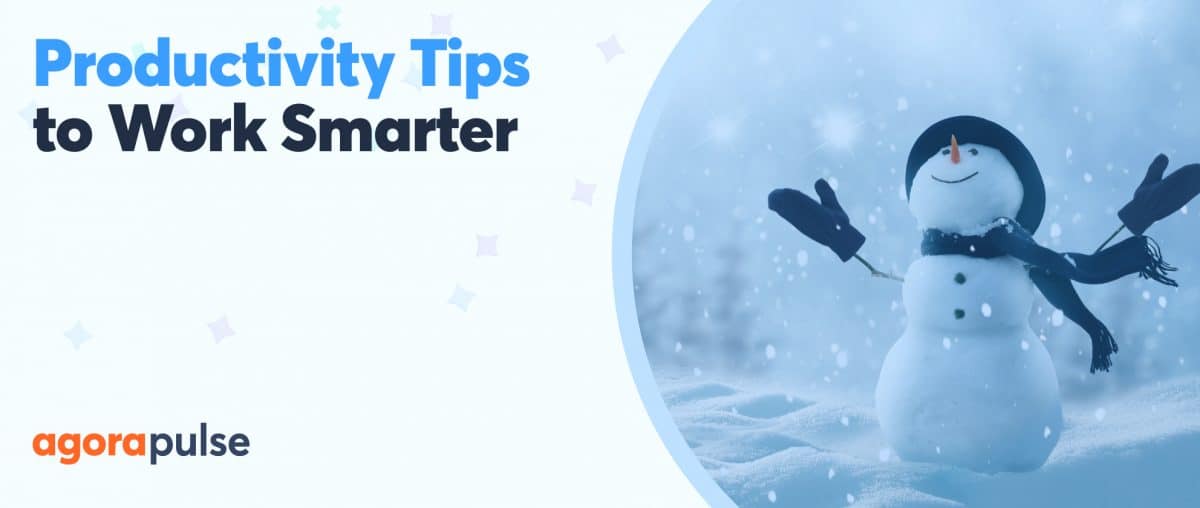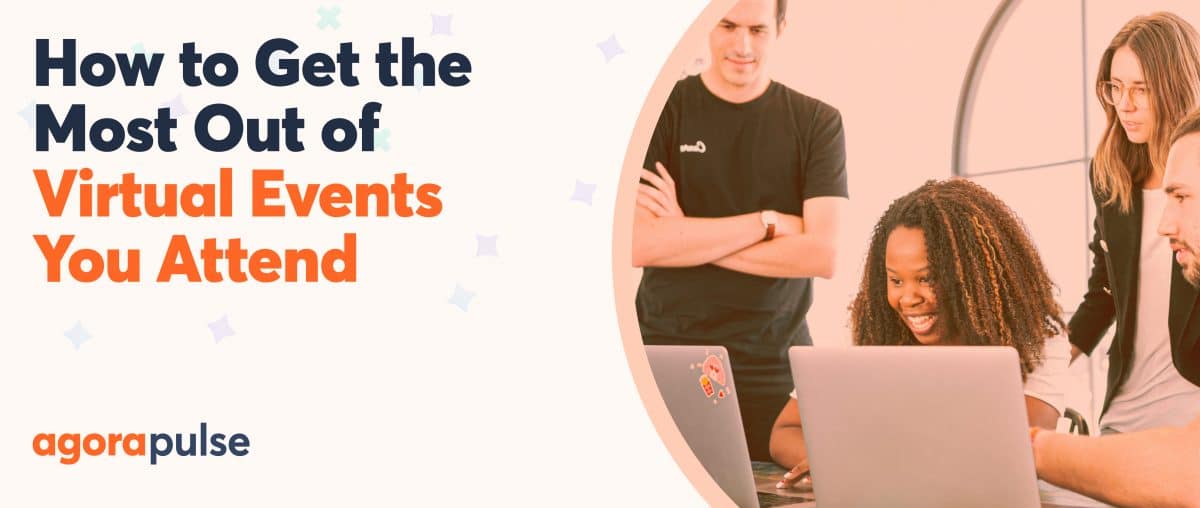What does this pandemic mean for event planners, marketers, and planners? We discussed this topic on a recent episode of Social Pulse Weekly. Here’s expert advice from our guests.
There’s no denying the world has gotten a little crazy lately. People are stressing out and trying to focus on their work while also keeping their families safe.
As entrepreneurs, we also have the concern of how to keep our businesses afloat and get a paycheck, so we can feed our families and pay the bills.
Recently, we’ve gotten a lot of questions from event planners, professional speakers, and marketers about what this pandemic means for their livelihood.
So in our last episode of Social Pulse Weekly, I was joined by some amazing people who shared their thoughts on how to conduct business during this difficult time.
My first guest was Erin Gargan King, a keynote speaker, an entrepreneur, and the author of the bestselling book “Digital Persuasion.” She’s also the founder of Socialite Agency, which has helped clients, such as Academy Award winners and the US Navy, communicate more compellingly.
I was also joined by Mitch Jackson. In addition to being the 2009 Orange County trial lawyer of the year and 2013 California litigation lawyer of the year, Mitch is one of the most well-known active trial lawyers on social media. He’s been profiled in best-selling books and dozens of publications, and has presented cutting-edge business, legal, and marketing techniques at the Tony Robbins’ Business Mastery seminar the past several years.
Finally, we talked with Brian Fanzo, a digital futurist and keynote speaker known for translating the trends of tomorrow to inspire change. He teaches companies of all sizes how to leverage technology to engage their customers at the right time. Brian has a gift for bringing people together, both online and offline, and has worked in 76 countries, highlighting his passion for change, collaboration, and technology.
I had a ton of questions for these guys, so let’s jump right in!
Q: What’s one positive thing you’ve seen happen since this whole pandemic started?
Brian: “I think what I’ve realized is that we have this opportunity to make the world a more empathetic place. It makes us realize we’re much more alike than we are different. If we can remember this, maybe we can all be a bit less divisive and a little bit more positive.
“So I think for me, it’s the ability to spin a really bad situation and look at it as a great start to something that will change a lot of lives, and change the way we approach things moving forward.”
Erin: “For my husband and I, it’s been about reframing our personal and professional priorities. In times like this, there’s so much panic, uncertainty, and emotion. So for us, it’s been about reframing what matters.
“For instance, I haven’t Facetimed my dad in two weeks, and we’re best buds. So yesterday we were finally able to have a long Facetime. I think it’s important for people to remember that it’s the people that matter in life and that we are not our jobs.
“Many of my live events and keynotes have canceled for the next two months, so this has opened up a great space for me to focus on the items at the bottom of my to-do list. For instance, we’re throwing up our online course, finally! We’re getting more diligent about connecting with our audiences remotely. I’ve also had time to work on my new book. So there have been a lot of positives.”
Mitch: “I can support everything Erin and Brian just said. Our son is coming home from USC today, as their classes are going online. They’ve been asked not to return after Spring Break, so one of the plusses is that our son gets to come home and hang out with us for a while.
“Professionally, it’s been exciting to watch our clients start to embrace technology; they’re starting to see how live video works, how it can connect us in a safe fashion, and how it allows us to continue doing business and moving forward in a very uncertain world.
“Now is the opportunity to pivot, and do what I call a pre-mortem: instead of evaluating something post-mortem during an autopsy, we can sit down ahead of time and come up with solutions with our team and our best customers to figure out what we need to do.” (Mitch Jackson)
“Right now, the biggest issue I’m seeing is cancellations of services, products, and speaking events. So if you’re a speaker, use this time to focus on tidying up and clarifying your cancellation policy in your speaking agreement. If you’re selling products or services, what does your cancellation clause say? Does it help protect your interests? If so, you have leverage, and that gives you the ability to be flexible with rescheduling or to offer a longer term of delivery.”
Q. Speaking of cancellation agreements, what should speakers and event planners have in place to protect themselves?
Mitch: “If you’re a speaker, make sure you document the terms and conditions of your speaking agreement in writing. For instance, let’s say you’re asked to speak on a cruise ship, but that ship recently had 19 infected employees … and the management company still wants you to be there on this three-day cruise. This is the type of situation in which you have the discretion to say no thanks! This doesn’t put you in breach of contract, as management has the responsibility to provide a reasonably safe venue for speakers, employees, volunteers, and attendees.
“This example is at the far end of the spectrum, but unfortunately, after being in business for 34 years, I can tell you that sometimes it’s a challenge to get corporations to put the safety of people over their year-end profits.
“So all I’m saying is document whatever contingencies may come up. In your speaking agreements, take advantage of waivers, assumption of risk provisions, and indemnification clauses. What this does is protect you if the conference drops the ball and allows people with an infectious disease (in this case COVID-19) to attend the conference, and didn’t do anything about it. If someone on your team becomes ill, or even worse, dies, these types of clauses allow you to get reimbursed for medical expenses from the conference provider and insurance carrier.
“These are all types of terms that you can plan ahead of time in your speaking agreements, that hopefully, you’ll never need. The bottom line is we want things to move forward in a smooth and win-win fashion for everyone involved.
“I think all of us here have committed to speaking at an event simply via a couple of DMs or tweets back and forth. But when you do that, you’re exposing yourself to the unknown, or to someone that has the wrong goals in mind, as opposed to what’s safe for everyone involved.”
Q. Are there templates professional speakers can use for their agreements? Or should they hire a lawyer?
Mitch: “There are templates out there, but you want to make sure you’re using one that’s been put together correctly. I’m a trial lawyer, but I’ve put together speaking agreements for some of the top speakers and brand ambassadors we all know. I know what provisions need to be in there. The problem is when you have speakers or event planners modifying those agreements.
“I’m a big fan of Legal Zoom and Rocket Lawyer, and some of the groups where people can exchange professionally prepared documents with each other. However, if you have an attorney, maybe have him or her look it over to make sure they incorporate everything we’ve talked about.”
Q. What’s the biggest lesson you’ve learned so far during these uncertain times?
Erin: “If you’re a professional speaker, event planner, or brand marketer, and all of your events are being canceled, it may feel like the end of the world.
“However, I think we need to look at what’s possible, and to reinvent what live events might look like.” (Erin Gargan King)
“Obviously, you can’t replicate the feeling of being in the same room as people, of feeling each other’s energy. But what you can do is have a Plan B that involves virtual events.
“I see three things happening right now …
“First, event planners are scrambling to figure out how to take an offline event and put it online in a way that’s compelling. And their knee-jerk reaction is to throw their speakers onto a Zoom and have them give their talks on a livestream. But unfortunately, a lot of what happens in the real world doesn’t translate well into this medium.
“Smart meeting planners and brand marketers are moving beyond simply the functionality of how to deliver their meetings, and evolving to think about what type of format is actually going to grab and hold people’s attention. What kind of experience can we create where all these quarantined individuals can still learn, connect and grow?
“The second thing people are talking about right now is, what is the venue of the future? It’s not just moderating a panel or livestreaming a keynote. It’s reinventing how we put together these experiences. For instance, are you leaving in your sponsors? Are you doing giveaways? Are you doing Zoom breakout rooms for attendees after a shortened keynote? Can you throw it back to different influencers internally to really weigh in, in real-time, on what the keynote speaker just said?
“Finally, the third thing is this: How can we best take what we do and connect that with the audience of the future? For us, one of the ways this is happening is through really exciting, dynamic, live coaching sessions. We are also looking at creating an online course, and we have been going live every single day rather than once a week.
“I’d encourage anyone who’s reading to think through what’s possible for you, and where the blessing in disguise is in this scenario. I really believe that this is forcing us to rethink what the workforce and events look like.
Q. What’s your approach with your business right now, in the midst of the coronavirus?
Brian: “I think it’s important to remember that the world will never be the same and that everyone’s lives are impacted. Two weeks ago, I had dinner with 12 professional speakers. At that point, we had lost around $200K worth of business. We had dinner again three nights later, and by that point, we had lost multiple millions of dollars in business between the lot of us.
“There’s a tendency for us to batten down the hatches, and change our income and expenditures. I can’t believe all the things I did wrong when this all started. Even coming to the point of being like, ‘Hey, I need my deposit, even though the event’s been canceled.’ I think we need to understand that uncertainty exists for everyone and that we have to approach things with empathy for how we connect with people, and also how we present opportunities.
“For me, I’m approaching each opportunity with, ‘How can I help someone else feel like their job isn’t at stake?’
“Erin and I just spent an hour trying to figure out how to help event planners not feel like they’re going to be out of a job. And I think that mindset is so important. Because if you’re going to be self-serving right now, it’s going to fall on deaf ears and hurt you in the long-term.
“Many businesses are monetizing online events right now. For me, my events dropped from 14 to 2, to 1. For the next 90 days, I have no clients, no events, and no secondary revenue. So I could get mad for not having contingency plans in place, or I could call up a friend like Erin and brainstorm about how the hell we can change the world.
“When this all started, I found myself leaning towards the idea of, ‘You know what? I’m going to beat everyone to the punch. I’m going to throw a bunch of crap out there that I know I can do.’ But then I realized: What’s the long-term value of this? What kind of reputation do I want to build?
“Companies are now going to have extra money to spend on different things, now that their events are canceled. For me, it’s not going to be about going to those brands saying, ‘Hey, hire me to speak.’ Rather, it’s ‘Let’s brainstorm together. Let’s create a virtual experience to replace some of their lost revenue.’
“Online events are never going to replace offline ones. What we’re doing right now is trying to figure out how we bridge the gap. How do think digital first? We want to deliver a powerful, inspirational, educational, motivational piece of content that captures attention like it would offline.” (Brian Fanzo)
“I think the biggest lesson we can have right now is we shouldn’t be selling or marketing to anyone. We should be reassuring people and building trust and relationships, and figuring out how we can work together to solve problems.”
Q. Should professional speakers allow businesses to automatically transfer their presentation to a digital platform?
Mitch: “Don’t let corporations dictate what’s going to happen next for you. Take control of your brand.
“There are a lot of great keynote speakers who are just terrible on video for whatever reason, so don’t let a conference automatically transfer your presentation to a digital presentation if that doesn’t work for you. Having said that, we’re looking at a time in business and life when there’s a permanent pivot taking place. Digital presentations are here to stay.
“If we go back to what we did before the Internet, before social media, there was a world back then.
“For instance, even the way we try our cases is different now in terms of jury selection, presenting evidence and opening statements. We used to take 2-3 hours for our opening statement. But now we have to approach a trial with 18-minute TED Talks and 140-character tweets in mind. And that’s the way I’m giving my opening statement. I’m tweeting, using my words, keeping it to 20 minutes or less.
“But to turn that to what’s happening today with social media and digital: People want to consume content wherever they are, regardless of what they’re doing.
“So even if you’re doing an offline event, you need to complement it with an online presentation or make it an exclusive online event. You need to entertain, be unique, and create memorable experiences people will talk about.
“You also need to make sure you include venue clauses in all your agreements. For instance, I can say that all disputes, claims, and litigation will take place in Orange County, CA. So regardless of where the event is held, I can pick where the claims are going to be resolved. That in itself will help avoid 90% of any disputes, as nobody wants to fly from New York or Perth or London to argue a $10,000 issue.”
Q. If an in-person event moves online and the speaker agreement doesn’t cover that eventuality, can the event change the speaker fee?
Mitch: “It depends on the totality of the agreement. If there’s no provision for an online presentation, the other side can’t just assume that’s something you’re going to do. You could argue that an online presentation is easier or more difficult. Should it reduce your rate or increase your rate? It really depends on the circumstances surrounding the situation.
“If you’re facing a situation like this, check with your insurance agent to see if you can get additional coverage because of disruption of business and financial loss coverage for your industry.
“For anyone putting on an event, think about having a premises liability, or having an infectious disease expert come in and look at your physical layout to give recommendations as to what you should or should not do. You can even have them inspect your site entirely through live video. This is really important in case, God forbid, something happens 6 or 12 months from now, and someone claims they became ill at your event.”
Q. Everyone’s stressed right now with schools closing. And some daycares are still requiring tuition payments even though they’re not open. Is this legal?
Mitch: “Each state is different, and I can’t give legal advice here.
“But I can tell you that what people need to do is check with their local and state agencies to see what the law provides. Check with your local bar associations. These are all organizations that have online or traditional offline phone trees where you can call in or live chat or email them. So the bottom line is that it depends on the laws in your state.”
Q. What about employee rights during this time? Where should people go for more info?
Mitch: “It depends on the remedies and protocols your company has. A lot of companies have employee manuals that lay out exactly what the rights are under these circumstances.
“If you don’t agree with a decision a company makes, they have what are called grievance procedures, which are steps you can go through before you can file a formal claim or litigate the matter. So I would sit down and talk to management and to your employer to see what your options are. Put the burden on them … Find out why they’re making the decision they’re making.
“Things can get complicated if you’re part of a labor union or teacher’s union due to all the rules and regulations. Each case is specific and unique. But like Brian said earlier, put the legal stuff aside for a second and think about the relationships.
“Think about what’s best for your employees and everyone involved. Put the health and safety of your customers and clients first. Put that first, and I think everything else will fall into place over the long-term.”
Q. What can professional speakers focus on right now in these times of uncertainty?
Mitch: “There will be a need for consulting on how to present yourself online. That’s a whole new industry now. So there are so many new opportunities opening up. For anyone who’s a gifted speaker, you need to share and teach the rest of us how to engage online, how to make eye contact with the webcam, etc.
“In 10 years, people are going to look back and think, ‘Why didn’t I jump on that?’ and ‘Why didn’t I go all in on building out that production studio to help other professionals come across better online?’
“Focus on what you have control of. Stay positive. Keep moving forward. Start from a business standpoint, crossing your t’s and dotting your i’s. That gives you leverage to make decisions that work for you, and it gives you the flexibility to be able to build goodwill and better relationships with your clients and customers.” (Mitch Jackson)
Erin: “Being ourselves is important. Taking deep breaths is important. Being aware of how we’re monitoring our minds and bodies, and taking care of ourselves physically.
“And in the midst of all the doom and gloom stories, pay attention to the beautiful stories, too. For instance, I heard one story of an 80-year old couple who were sitting in their car outside the grocery store, scared to go in. They rolled down their windows, held out a $100 bill, and asked a gal walking by if she would mind helping them. And she and her two girlfriends grabbed the groceries, put them in the backseat, and off they went. The whole thing took 30 minutes. This is a great time to tap into our empathy and humanity, and just try to come together.”
Q. This question is on behalf of all the professional speakers out there. If they’ve received a deposit and now an event has been canceled, should they give the deposit back?
Erin: “I’m not a lawyer, but what I will say is we’ve had dozens and dozens of cancellations. And each contract is different. First, I would say that if you’ve gotten a deposit from an event that’s been postponed, you’re good there right now. If it’s been canceled, that’s a conversation you’ll want to have with them. What we’ve been doing is basically giving back the deposits, and saying, ‘Hey when you reschedule this, let’s revisit things.’
“I believe that fall and winter are going to be great times for all of us speakers. There are a lot of relationships on the line and a lot of karma. If I’m not doing any work, I don’t think I should get paid … That’s my perspective.
“If there’s an event that’s been moved to an online format, I’m going to go on and I’m going to give a version of my keynote. I’m going to do the exact same type of content, but in a completely re-imagined format for half the price of my keynote fee. So, I’m keeping the 50% deposit for going virtual but am trying to push my event and brand marketers to think about how we can make this hour or 90 minutes look.”
Q. What’s something that’s happened in your career that’s really inspired you? Or a pivotal moment that provided some kind of motivation or inspiration?
Erin: “For me, it was anchoring in on my ‘why.’ In my office, we have three big sheets of paper that say:
- Have fun.
- Help people.
- Make money.
“This is basically our mission statement. So for everything that we’re doing, we go back to those three pieces of paper. And our goal is to have at least 2 or the 3 bring us back to a decision we’re making.
“For inspiration, another thing I do is have what I call a ‘Go Girl’ folder. Whenever I get an email, DM or tweet from someone who’s read my book or seen me live, and who has expressed how something I said made a difference in their life, it goes into that folder. It’s like little battery charges that get me through the day.”
Brian: “I was blessed to find a community-led by Scott Stratton and his amazing wife Alison. When you find people in your space that are similar to you, that put community first, it’s really hard to feel lonely and lost.
“Erin and I are both part of a very tight mastermind group online. These are all superstars, million-dollar speakers, and authors of multiple books, and even they’re saying they feel lonely and lost. They’re unsure where things are going. So I would just say, find your people.
“Find people that will build you up, and that will help you celebrate your wins.” (Brian Fanzo)
Mitch: “Mine has nothing to do with digital. It had to do with a jury verdict. There was a $1 million offer to get the case done. Five years later, we tried the case and the jury came back with a $5.5 million verdict. It was the largest verdict that year in that part of California and actually changed the law in that particular county. The point is, I was a young guy who hadn’t tried a lot of cases. I wasn’t sure what I was doing, kind of like where we’re all at right now with this whole COVID-19 thing.
“Take action and believe in yourself, and keep trying to do the right thing, no matter what anyone else says. Just keep going, and people will notice and will start to step up and good things will happen.”
Tune in to Social Pulse Weekly
Social Pulse Weekly brings you incredible marketing experts and today’s latest social media news and developments. Tune in every Friday at 2PM ET to keep your finger on the pulse of social media.
Sign up now for a FREE demo.





![Feature image of How to Create a Healthy Feedback Culture [Definition + Practical Tips] Feature image of How to Create a Healthy Feedback Culture [Definition + Practical Tips]](https://static1.agorapulse.com/blog/wp-content/uploads/sites/2/2022/03/How-to-Create-a-Culture-of-Feedback-in-Your-Social-Media-Agency_V1_Blog-Feature.png)

